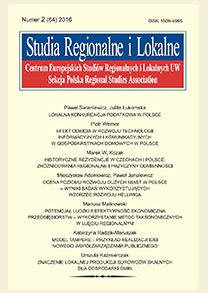Development of international financial centres in Central and Eastern Europe during transition period and crisis. The case of Budapest
Development of international financial centres in Central and Eastern Europe during transition period and crisis. The case of Budapest
Author(s): Zoltán GálSubject(s): Economy
Published by: EUROREG - Uniwersytet Warszawski, Regional Studies Association - Sekcja Polska
Keywords: international financial centres; Central and Eastern Europe; post-socialist transformation; FDI; IFC functions; crisis
Summary/Abstract: This paper examines the development of international financial centres (IFC) in Central and Eastern Europe (CEE). The study argues that the development of the financial services in CEE is characterized by external dependency, which is manifested in the form of hierarchical command and control functions over CEE financial subsidiaries within the West European IFC network. The paper quantitatively compares the factors of IFC functions of Budapest in comparison to those of Warsaw and Prague. It argues that despite the lack of market evidence showing signs of a regional centre focus during the transition period, there are some signs of IFC formation. The paper assesses the uneven impact of the global economic crisis upon CEE financial centres and confirms that their development trajectories became more differentiated as a result of the crisis. The steady decline of Budapest during the second half of the 2000s was accompanied by the rise of Warsaw. Our analysis concluded that Budapest, despite its earlier endeavours, most likely lost the competition to become an international financial centre.
Journal: Studia Regionalne i Lokalne
- Issue Year: 16/2015
- Issue No: 60
- Page Range: 53-80
- Page Count: 28

